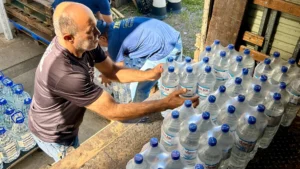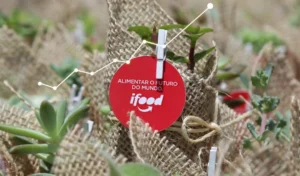Discover the actions aimed at consuming less and recycling and reforesting more
Everyone can take some simple attitudes, in everyday life, to protect the environment. But can you also do this when ordering food? If it's on iFood, it works. After all, the company's positive environmental impact plan — the iFood Regenerates— aims to neutralize the emission of polluting gases and eliminate plastic pollution in delivery by 2025.
To get there, the foodtech created a series of initiatives that also help consumers reduce their environmental impact in three ways:
Reduce the use of single-use plastics
Since 2021, iFood has offered customers the option of eliminating the need for restaurants to send cutlery, cups, straws and other plastic items. Right away, 82% of people responded on the app that they would prefer not to receive plastic cutlery and straws.
Result: in eight months, more than 130 million deliveries were made without plastic items. This means that 1,000 tons of this material were no longer delivered with meals. Now, the The goal is to have zero plastic pollution in delivery by 2025. Let's go together?
Planting new trees in the Atlantic Forest
One of the most important biomes in Brazil today has only 12% of its original vegetation cover. To help with recovery, iFood opened a space in the app to collect donations to plant native trees in partnership with the SOS Mata Atlântica foundation and the Heineken Group. The goal was to plant a tree for every R$ 16 donated by iFood customers.
In March 2022, the partners started planting 50 thousand seedlings in the cities of Porto Feliz and Marabá Paulista (both in São Paulo), which represents an area similar to that of 20 football fields and which can remove up to 8,300 tons of CO2 from the atmosphere in 20 years — the equivalent of 28 million deliveries in the delivery.
Discover what you can recycle
Do you know Recicla Bot? It's a chatbot that uses artificial intelligence to answer your questions about recycling on WhatsApp. Just send a message and the chatbot will be ready to help identify whether the packaging is recyclable and where to dispose of the material, for example — it could be at one of the 78 voluntary disposal points for recyclable waste, the PEVs located in São Paulo, Rio de Janeiro. Janeiro and Bahia.
Furthermore, when the iFood order reaches you, the entire emission of pollutants from that delivery has already been compensated in advance (that's if it wasn't made from a bike). Instead of compensating at the end of the operating year, iFood calculates the volume of emissions according to sales expectations and acquires carbon credits to neutralize them.
In 2021, the resources generated in purchase of carbon credits were applied to Amazon preservation projects. In 2022, the focus was on projects to encourage the generation of renewable energy.


